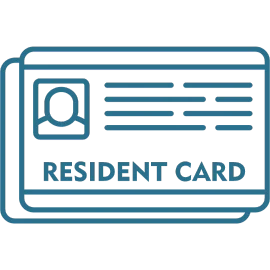In May 2025, the UK’s Labour Government released a new Immigration White Paper titled ‘Restoring Control over the Immigration System’. This policy document sets out major reforms intended to reduce net migration, strengthen enforcement, and promote economic and social integration.
The proposals cover significant changes to work, student, family, and settlement routes. Below is an overview of the key measures found in the White Paper.
Changes to Work Visa Routes: Emphasising Skills
The White Paper proposes a range of updates to work visa routes, focusing on attracting highly skilled professionals and reducing reliance on lower-skilled labour.
Higher Qualification Level for Skilled Worker Visas
The minimum standard for Skilled Worker visas will be increased from RQF Level 3 (A-level equivalent) to RQF Level 6 (Bachelor’s degree equivalent). This will mean that roles offered to overseas nationals must require degree-level skills, bringing the UK’s migration policy in line with economic priorities.
Employers must show that posts genuinely need graduate-level qualifications, helping to ensure that work visas are only granted for roles that contribute to the UK’s long-term goals.
Higher Salary Thresholds
Minimum salary thresholds for skilled worker visas will rise, although the government has not yet set the exact figures. These higher thresholds will apply both to main applicants and to those who wish to bring dependants, limiting the risk of relying on public funds.
In addition, salary discounts that were previously available under the Immigration Salary List are being withdrawn. This measure is intended to prevent wage suppression and ensure that both UK and overseas workers are paid fairly.
Introduction of a Temporary Shortage List
A new Temporary Shortage List (TSL) will replace the Immigration Salary List. Only roles with genuine domestic shortages will be included, and these roles will be time-limited. Sectors will need to show they are training a local workforce to avoid becoming permanently dependent on overseas labour.
The TSL will have a strict time limit, and employers using it must show a clear commitment to recruiting and training local workers. This measure aims to stop certain sectors from becoming permanently dependent on overseas labor. Additionally, dependants of workers hired through the TSL may encounter extra restrictions, which could further reduce the number of migrants coming to the UK.
Phasing Out Overseas Recruitment for Social Care Workers
The Health and Care Worker visa will soon close to new overseas applicants due to concerns over exploitation and the sector’s dependency on international staff. A transitional period, due to end in 2028, will allow those already in the UK to extend or switch visas, but no new international recruitment will take place via this pathway.
Strengthening Sector Workforce Strategies
Industries with significant overseas hiring, including health, social care, hospitality, and agriculture, will need to create detailed workforce plans. These plans should outline how employers intend to invest in local skills development, training, and recruitment. The Government’s goal is to establish a sustainable domestic workforce that does not depend heavily on migrant labour.
Increased Immigration Skills Charge
Employers who wish to sponsor overseas staff will see the Immigration Skills Charge increase by 32 percent, encouraging greater investment in training and supporting the domestic workforce.
Refugee Access to Employment Opportunities
The government is considering allowing a limited number of refugees and displaced people recognised by the UNHCR to access employment through skilled worker routes, giving qualified individuals a legal route to UK jobs.
Expansion of Highly Skilled Routes
The White Paper also proposes expanding existing schemes for highly skilled migrants. This includes speeding up entry for those with critical skills, as well as increasing the number of eligible institutions under the High Potential Individual (HPI) route.
Student Migration: Stronger Oversight and Regulation
Student migration is recognized as a key factor contributing to overall migration numbers. The White Paper sets out a range of reforms aimed at ensuring student visas are used properly.
Tighter Rules on Student Dependants
Only international students enrolled at top-ranking universities or on advanced degree courses will be allowed to bring dependants to the UK, reducing the misuse of student visas as a route for family migration.
Increased Compliance Checks for Universities
Universities and colleges that recruit international students will face more compliance checks. A new Red-Amber-Green monitoring system will rate institutions by their history of meeting immigration rules, with consequences for those with poor compliance records.
Shortened Graduate Route
The post-study work period under the Graduate Route will drop from two years to eighteen months, keeping the programme focused on high-value education and skilled contribution rather than providing a route to longer-term settlement.
Reforming Family Migration: Suitability and Integration
Proposals also cover changes to family migration, with a view to ensuring fairness and better integration.
New Family Immigration Policy
A revised policy on family migration will be introduced by the end of 2025, focusing on balancing the right to family life with the UK’s need for effective migration control and full integration of families.
Stricter Suitability and Financial Requirements
Family visa applicants will need to meet tougher suitability standards, including showing good character and compliance with UK law. There will also be increased financial thresholds to ensure individuals can support family members without turning to public funds.
Higher English Language Standards
Dependants coming to the UK as family members of workers and students will face stricter English language requirements, starting from A1 level for initial applications, A2 for extensions, and B2 for settlement. These requirements are designed to help new arrivals integrate fully into UK society and the labour market.
Immediate Settlement for Bereaved Parents
Parents in the UK on a family visa who lose a child will be granted Indefinite Leave to Remain immediately, removing the need to complete a qualifying period. This change reflects a compassionate approach to bereaved families.
Settlement and Citizenship: Earning the Right to Stay
The Government is also revising the process for settlement and citizenship to make sure these benefits are granted based on merit.
Extended Residency for Settlement Applications
For most work routes, the qualifying period for Indefinite Leave to Remain will be increased from five to ten years. This change means that only those making significant long-term contributions to the UK will be eligible for settlement.
Earned Settlement Scheme
Migrants who show outstanding contributions to UK society or the economy may be permitted to settle sooner, through a new earned settlement scheme.
Improved Integration Measures
The Life in the UK Test will be reviewed and revised to ensure it reliably measures an applicant’s understanding of British values, history, and society.
Enforcement and Compliance Measures
The White Paper sets out tougher measures to ensure adherence to the new system and keep abuse to a minimum.
Establishment of a Fair Work Agency
A new body, the Fair Work Agency, will protect migrant employees from exploitation and see that employers follow all relevant immigration rules. If a migrant worker experiences exploitation, they will be allowed to switch employers without penalty.
Higher Penalties for Rule Breaches
Employers breaking immigration rules will face stronger penalties, including larger fines for illegal employment or paying less than the required wage.
Introduction of a Universal Digital Visa System
An electronic visa platform will be introduced for all migrants. This system will hold real-time records of entries and exits, supporting improved compliance and monitoring.
How JPS Immigration Can Assist
The UK Government’s new Immigration White Paper marks a clear shift in the country’s migration strategy. It focuses on prioritising skilled workers, enhancing enforcement, and aligning migration with the nation’s economic and social objectives.
These reforms will have a major impact on employers, educational institutions, and migrant communities, ushering in a new phase of controlled, fair, and sustainable immigration policy.
Navigating these changes can be complex, but our legal team is ready to offer clear and practical advice on all areas of UK immigration law, from skilled worker visas to sponsor compliance. Whether you are an individual, a business, or an educational organisation, we provide expert support to help you remain compliant and reach your immigration goals.
Get in touch with us today for tailored guidance.











































